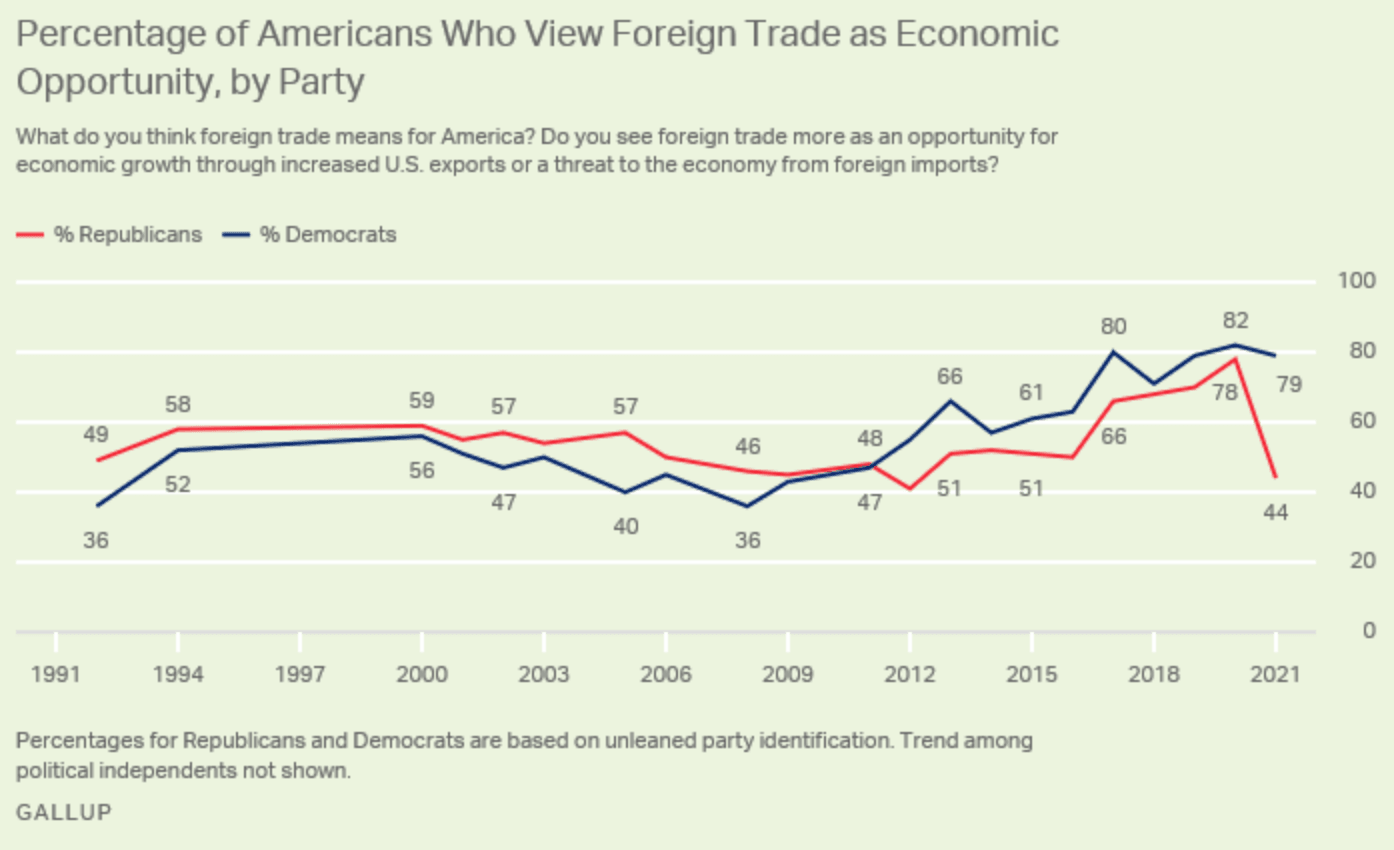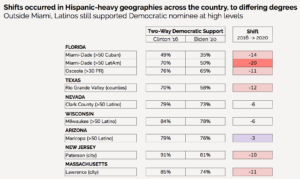A slim majority of Republican voters now see foreign trade as a threat to the United States economy, a Gallup survey reveals.
A survey from Gallup this week finds that Republican voters’ opinions of foreign trade as a net benefit to the U.S. economy have dropped to the lowest point since the firm began tracking the opinions of voters on the issue in 1991.
Today, 51 percent of Republican voters view foreign trade, specifically imports, as a threat to the U.S. economy while just 44 percent see foreign trade as a benefit for economic growth. By comparison, in the year 2000, 59 percent of Republican voters had a positive view of foreign trade — that’s a 15 percentage point drop over the last two decades.
The survey found that Republican voters were very favorable to former President Trump’s trade agenda that imposed tariffs on foreign steel, aluminum, and went to war against China’s crushing economic dominance.
In 2020, for example, 79 percent of Republican voters viewed foreign trade as a net benefit for the U.S. because of Trump’s economic nationalist policies that replaced the North American Free Trade Agreement (NAFTA) with the U.S.-Mexico-Canada Agreement (USCMA) and imposed tariffs on a whole host of foreign imports.
This year, those favorable views have dropped 35 percent among Republican voters.
On the other hand, Democrats have become the party of foreign imports, the survey finds. In 2008, just 36 percent of Democrat voters had a positive opinion of foreign trade. Today, nearly 8-in-10 Democrat voters view foreign trade as a net benefit for the U.S. — a 43 percentage point increase.
Much of that uptick of support for foreign trade with Democrat voters is tied to the party’s changing electoral base which has increasingly encompassed wealthy professionals and the upper-middle-class voters.
The survey shows that voters with a postgraduate education are the most likely, 73 percent, socioeconomic demographic group to view foreign trade positively whereas just 56 percent of voters with a high school diploma or less are the least likely, 56 percent, to view foreign trade positively.
Swing voters are increasingly viewing foreign trade as a net negative. The survey finds that 30 percent of swing voters view foreign trade as a threat to the U.S. In 2020, just 18 percent viewed foreign trade this way.
The survey is the latest to underscore Republican voters’ support for economic nationalist policies that reshores U.S. manufacturing from abroad, cracks down on corporations for offshoring, and protects consumers with nation-of-origin labeling.
Every year, as federal data shows, Americans lose their jobs to offshoring and plant closures as a result of U.S. free trade policies. In 2020, at least 109,000 Americans were certified as having lost their jobs as a result of foreign trade.
Last month, 81 Americans employed at the General Electric Lighting-Savant in Bucyrus, Ohio were told they would be laid off as the company offshores production to China. The plant closure, which has been in the area since 1942, would mean a $100,000 tax revenue loss with a total of 200 Americans laid off in the small town of less than 12,000 residents.
Since 2001, U.S. free trade with China has eliminated at least 3.4 million American jobs. In 1985, before China entered the WTO, the U.S. trade deficit with China totaled $6 billion. In 2019, the U.S. trade deficit with China totaled more than $345 billion.
American manufacturing is vital to the U.S. economy, as every one manufacturing job supports an additional 7.4 American jobs in other industries.
John Binder is a reporter for Breitbart News. Email him at [email protected]. Follow him on Twitter here.



